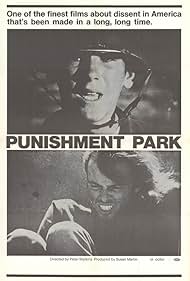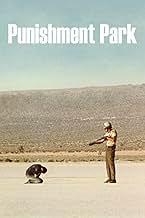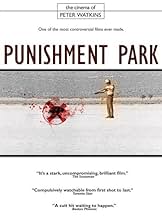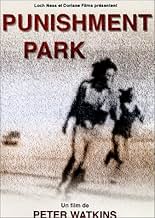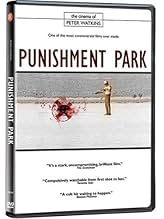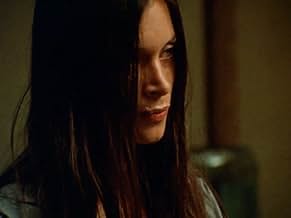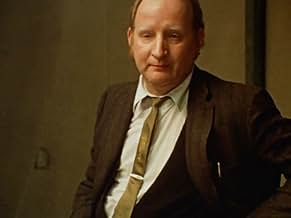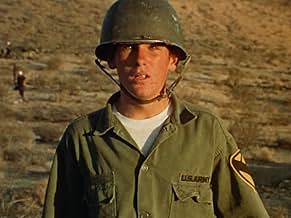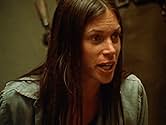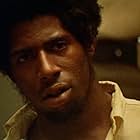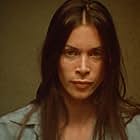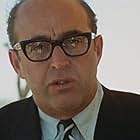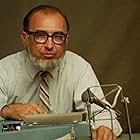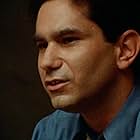"Punishment Park" is a pseudo-documentary purporting to be a film crews's news coverage of the team of soldiers escorting a group of hippies, draft dodgers, and anti-establishment types acro... Read all"Punishment Park" is a pseudo-documentary purporting to be a film crews's news coverage of the team of soldiers escorting a group of hippies, draft dodgers, and anti-establishment types across the desert in a type of capture the flag game. The soldiers vow not to interfere with t... Read all"Punishment Park" is a pseudo-documentary purporting to be a film crews's news coverage of the team of soldiers escorting a group of hippies, draft dodgers, and anti-establishment types across the desert in a type of capture the flag game. The soldiers vow not to interfere with the rebels' progress and merely shepherd them along to their destination. At that point, ha... Read all
- Awards
- 1 win total
- James Daly, Defense Attorney
- (as Frederick Franklyn)
- Director
- Writer
- All cast & crew
- Production, box office & more at IMDbPro
Featured reviews
The film is inspired by the upheaval of the late sixties in the US, when the government has increased its legitimized use of violence and oppression, while the anti-war movement reacts increasingly violent and radical. In order to deal with both this, the overpopulation of prisons and to provide special training to riot police units, the government has introduced the so-called punishment parks. Convicted 'criminals', mostly activists, are given the 'choice' to either be locked up in prison for years and years, or spend three days in one of these parks, where they either gain their freedom their death or an even longer prison sentence. The situation in the parks is beyond their worst expectations, however. It reminded me of a sort of realistic version of Battle Royale (2000).
The film's structure is extremely effective and recalls parallels with Cannibal Holocaust, which is made almost 10 years later. Both movies are constructed and filmed in such a way that the viewer is challenged in thinking and feeling he is actually watching a real documentary and therefore shocked, even though aware of the fact that: this is a film. Both confront us with the inherently violent nature of mankind, but where Cannibal Holocaust is devoid of any deeper meaning (above all, it is an exploitation movie in every sense of the word) and does not raise any critical questions about the state of the world, Punishment Park does just that.
I have been profoundly impressed with Punishment Park and find it hard to believe how such a powerful and important film could have been rejected and marginalized for so long. Maybe that says enough about the truth of its content, about the way power structures in this world function. I do not agree with the critique that Watkins polarizes and stereotypes, because the movie depicts activists and the keepers of the legitimized power structures who are in reality as polarized as they are here. If they weren't, there would not be any conflict and therefore no change in our societies. In reality, confrontations between these two groups often take stereotypical forms, whether you place them between activists and establishment in Latin America, Russia or New York City. If these groups would not be polarized to these extremes, the activists would be part of the silent majorities that tacitly complain but at the same time reside in the injustices of the world.
As Peter Watkins tells us in the introduction on the DVD, the actors in Punishment Park are for the most part amateurs. Most kids were real activists from LA, most policemen had been part of the national forces and even some of the members of the tribunals are part of the social and political establishment of the time. Not introducing both groups previous to the shooting of the scenes taking place in the improvised court room, adds to spontaneous and improvised feel. Parallels are drawn with issues of the time, such as the repression of Black Panther members (one of the black prisoners is said to resemble the convicted charismatic BPleader Bobby Seale) and the trial of the Chicago seven.
I admire Watkins' obvious and sincere engagement with injustice and his concern with human rights and the increasingly repressive measures taken by governments (nowadays in the name of the War in Terror) to silence those that do not agree and refuse to be brainwashed. Punishment Park remains to be an extremely important movie that should be shown in schools and seen by everybody who shares these concerns. Maybe its marginalization can finally be made up for.
Those convicted by the a Conservative tribunal have the choice of a lengthy prison sentence or three days in Punishment Park, in which they can attain their freedom by reaching an American flag in the desert. They must accomplish this without food or water. They are also to be pursued by armed National Guards and police who can return them to the camp if captured to face the penal sentence attributed to each person convicted. The reality is different; those that choose Punishment Park are hunted and killed or brutalised with no hope of gaining their freedom after a policeman is found dead in the park. The park seems to be a training ground for the police and guards who need to master these acts of suppression so they can be put to use in open American society.
Shot on 16mm and in the documentary style developed by Watkins, in his celebrated Culloden and the controversial The War Game for the BBC; he interacts with the prisoners and guards and observes the unconstitutional trial, inter cutting between them to create a totally convincing political movie that still remains vital and relevant. Using his knowledge of the medium, Watkins has produced a driving, relentless and ultimately frightening film portrayal of an entirely fictional American political detention camp that would not convince if it wasn't for his flawless construction. Many of the actors are amateurs improvising with broad characters. The sparks fly in the trial scenes in which each case is heard, in part to the fact that Watkins kept those on trial away from the jury until the filming of those scenes. Watkins also claims that the actors are often expressing their own opinions which certainly explain the ferocity as well as the believability of their performances.
The film has been heavily criticised for polarising the opinions of those that see it. It has been claimed that the film is reactionary and unequivocally represents that conservatism and war are the root of America's social problems. While these criticisms may be valid it is important to consider that the film is working on a fictional, metaphorical level and it is perhaps the realism that the film so cleverly constructs that encourages such a heated opinion on its content. In fact the films most important theme is the problem of polarisation itself. The 'conservative' judges and brutal law officers are on one side and the 'liberal' convicts are clearly on the other with no concessions made on either side. This seems to be what the movie is really about. The new law and the park itself is the outgrowth of a situation where mediation between the two political positions has been lost.
Made during and in protest to the Vietnam War and the treatment of those who opposed the war in America the films main themes of Governmental persecution of its own citizens and Conservatism impinging on civil liberties still strike the same chord in the era of the Patriot act and the identity card. It also strikes a disturbing chord with news footage of Guantanamo Bay and the treatment of Iraqi prisoners at the hands of Allied forces.
The threat of internal 'terrorism' is such a volatile issue that the film cannot fail to connect with current attitudes to the subject. Not surprisingly the film has had a checkered distribution history, being marginalised to an extreme due to its content but the disturbing fact that this movie is that can still remain so relevant today suggests that the wait has not been for nothing. Punishment Park is a film that has had to fight to be seen anywhere and it demands your attention.
Great movie!!!
Against a constitution which distinguishes itself with being conservative and contradictory in its foundations.
"Punishment Park" is a great portrait about the Nixon era, that hasn´t lost anything from its explosiveness till today.
This film is banned in America, but it should be seen by everyone - especially by US-citizens...
quote: 'Punishment Park. Described by the US senate subcommittee on law and order as: a necessary training for the law officers and National Garde of the country in the control of those elements who seek the violent overthrow of US government and the means of providing a punitive deterrent aforementioned subversive elements.'
The supposed delinquents can choose between their (severe) penal sentence or three days in Punishment Park, where officers in training may hunt them. We see the interrogations of a new group alternated with footage of a preceding group that is outside in the park fighting for their dehydrated life and to get to the American flag for chauvinistic 'salvation'. This dystopic penal system is the result of the politics of polarization, according to a condemned one. The hand-held cinematography and the minimalist industrial sound track with constant shooting and agony in the background create a sense of realism, AND it's frightening to see how far fantasy can go in a dated film: it's almost post-apocalyptic. What's even scarier, there are parts of the world that apply even more disreputable methods ... today
9/10 (not for the political ideas of course)
Storyline
Did you know
- TriviaMany of the "actors" were not acting in a traditional sense. In the introduction, Peter Watkins says many protesters were real-life protesters, and most soldiers were real-life conservatives. All improvised lines based on their opinions. There were no rehearsals.
- GoofsIn her tribunal closing statement, Alison Mitchner makes reference to the Preamble to the Constitution of the United States, and uses the phrase "life, liberty and the pursuit of happiness". This phrase is in the second sentence of the Declaration of Independence, not the Constitution.
- Quotes
Mary Jurgens, Tribunal Member: [shouting] You are immoral!
Jay Kaufman, Tribunal Defendant: I am not immoral.
[she continually interrups with shouting]
Jay Kaufman, Tribunal Defendant: You want me to tell you what's immoral? War is immoral! Poverty is immoral! Racism is immoral! Police brutality is immoral! Opression is immoral! Genocide is immoral! Imperialism is immoral! This country represents all those things!
- Crazy creditsThere are no opening credits at all. The title doesn't appear until halfway through the closing credits.
- ConnectionsFeatured in Hagan Reviews: Punishment Park (2017)
- How long is Punishment Park?Powered by Alexa
Details
Contribute to this page

